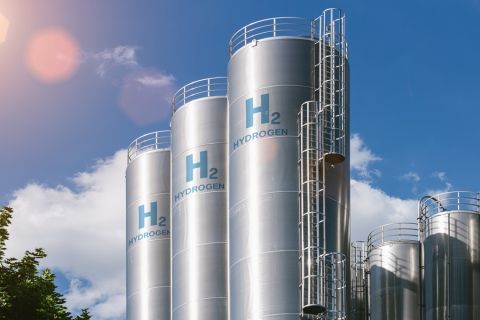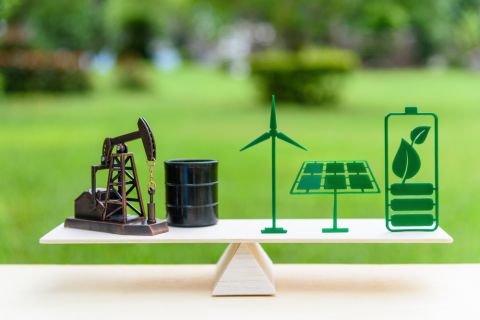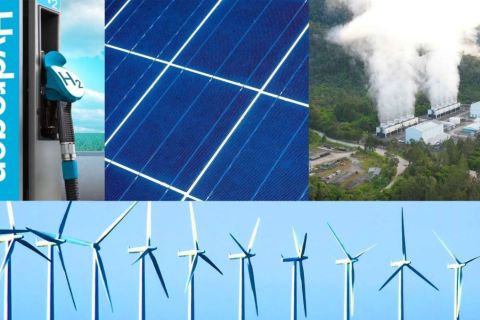Two top OPEC oil producers, Saudi Arabia and the United Arab Emirates (UAE), can barely increase oil production, French President Emmanuel Macron on June 27 said he had been told by the UAE’s president.
Saudi Arabia and the UAE have been perceived as the only two countries in OPEC with spare capacity to boost global deliveries that could reduce prices.
“I had a call with MbZ,” Macron was heard telling U.S. President Joe Biden on the sidelines of the G7 summit, using shorthand for UAE leader Sheikh Mohammed bin Zayed al-Nahyan. “He told me two things. I'm at a maximum, maximum [production capacity]. This is what he claims.”
“And then he said [the] Saudis can increase by 150 [thousand barrels per day]. Maybe a little bit more, but they don’t have huge capacities before six months’ time,” Macron said.
The UAE’s top energy official confirmed Macron's statement to the country's state news agency.
“In light of recent media reports, I would like to clarify that the UAE is producing near to our maximum production capacity based on its current OPEC+ production baseline,” said Energy Minister Suhail bin Mohammed Al Mazrouei.
World oil prices have been steadily rising in recent months due to a shortage of supply and rebound in demand from the worst of the coronavirus epidemic. Prices have risen further since Moscow invaded Ukraine in late February.
On June 27, benchmark crude rose after Reuters reported Macron’s comments. Brent oil prices rose 1.7% to above $115/bbl as the West seeks ways to reduce Russian oil imports to punish Moscow.
Saudi Arabia is producing 10.5 million bbl/d and has a nameplate capacity of 12 million-12.5 million bbl/d, which in theory shall allow it to raise production by 2 million.
The UAE is producing some 3 million bbl/d, has capacity of 3.4 million and has been working on raising it to 4 million bbl/d.
Europe is looking for ways to replace as much as 2 million bbl/d of Russian crude and some 2 million bbl/d of refined products it had been importing from Moscow before the Ukraine war.
Recommended Reading
Baker Hughes Marks Hydrogen Milestones
2024-01-29 - The energy technology company is involved with several hydrogen projects as it works to accelerate the hydrogen economy.
Tangled Up in Blue: Few Developers Take FID on Hydrogen Projects
2024-04-03 - SLB, Linde and Energy Impact Partners discuss hydrogen’s future and the role natural gas will play in producing it.
EnCap Launches Bildmore to Invest in Hard-to-finance Clean Energy
2024-03-11 - In an effort to support hard-to-finance clean energy projects, EnCap Energy Transition Fund is launching Bildmore, a platform expected to invest in up to 15 third-party battery storage, solar and other energy transition projects per year.
Braya Renewable Fuels Begins Commercial Operations at Revamped Refinery
2024-02-23 - The Come By Chance refinery in Newfoundland and Labrador produces renewable diesel instead of petroleum diesel.
Energy Transition in Motion (Week of Feb. 9, 2024)
2024-02-09 - Here is a look at some of this week’s renewable energy news, including the latest on a direct lithium extraction technology test involving one of the world’s biggest lithium producers and the company behind the technology.





